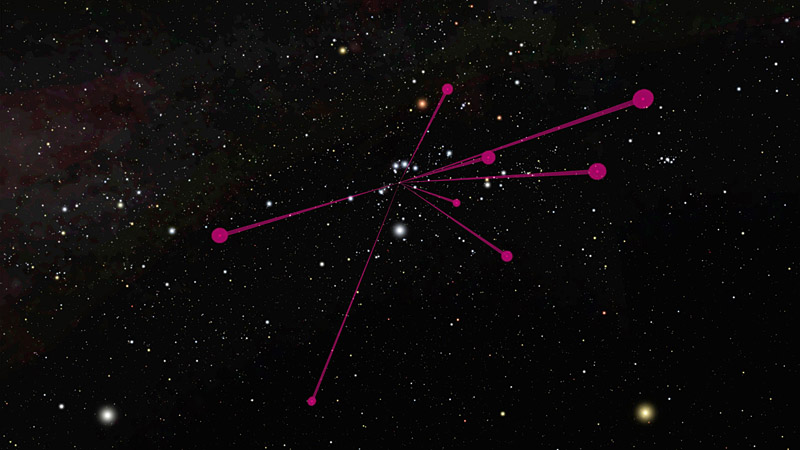The locations of brown dwarfs discovered by NASA’s Wide-field Infrared Survey Explorer, or WISE, and mapped by NASA’s Spitzer Space Telescope, are shown in this diagram. The view is from a vantage point about 100 light-years away from the sun, looking back toward the constellation Orion. (Image credit: NASA/JPL-Caltech)
Home The locations of brown dwarfs discovered by NASA’s Wide-field Infrared Survey Explorer, or WISE, and mapped by NASA’s Spitzer Space Telescope, are shown in this diagram. The view is from a vantage point about 100 light-years away from the sun, looking back toward the constellation Orion. (Image credit: NASA/JPL-Caltech) The locations of brown dwarfs discovered by NASA's Wide-field Infrared Survey Explorer, or WISE, and mapped by NASA's Spitzer Space Telescope, are shown in this diagram. The view is from a vantage point about 100 light-years away from the sun, looking back toward the constellation Orion. (Image credit: NASA/JPL-Caltech)
The locations of brown dwarfs discovered by NASA’s Wide-field Infrared Survey Explorer, or WISE, and mapped by NASA’s Spitzer Space Telescope, are shown in this diagram. The view is from a vantage point about 100 light-years away from the sun, looking back toward the constellation Orion. (Image credit: NASA/JPL-Caltech)



